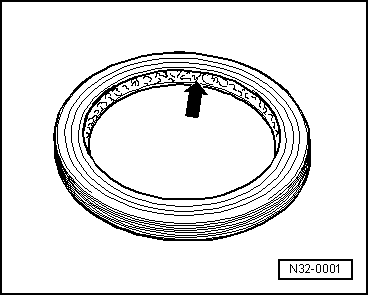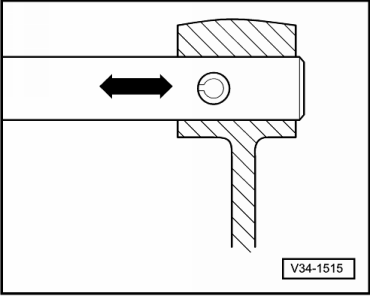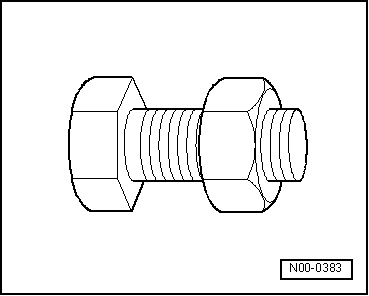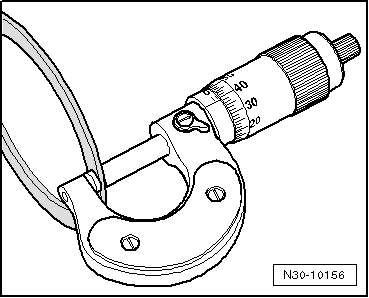| t
| Check grooves -arrow 1- on synchronizer ring -A-, or check the inside of the ring for flattened parts (grooves worn). |
| t
| When installing the intermediate ring -B-, check outer contact surface -arrow 2- and inner contact surface -arrow 3- for grooves, blue coloring (caused by overheating) and other damages. |
| t
| Insert with some gearbox fluid. |
| Clean and heat on a heating plate or with the hot-air blower -V.A.G 1416- to approx. 100°C before pressing on. |
| The temperature can be checked with a temperature measuring instrument. |
| t
| When removing gearbox, remove slave cylinder, do not detach the hoses. |
| t
| If the slave cylinder with connected hydraulic line is removed, do not depress the clutch pedal. Otherwise the tappet is pressed out of the slave cylinder. |
| t
| Do not tilt the clutch pressure plate; release and tighten crosswise in small stages. |
| t
| If the clutch pedal does not return to its initial position after the coupling procedure - clutch pedal in home position - the clutch control must be bled (further measures → Chapter). |
| t
| In order to reduce unpleasant odours if the clutch is burnt, thoroughly clean the clutch housing as well as the flywheel and the engine on the side of the gearbox. |
|
|
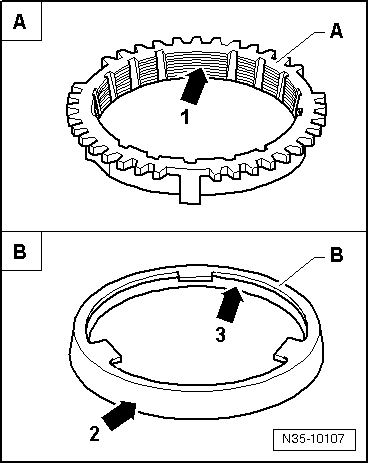
|
